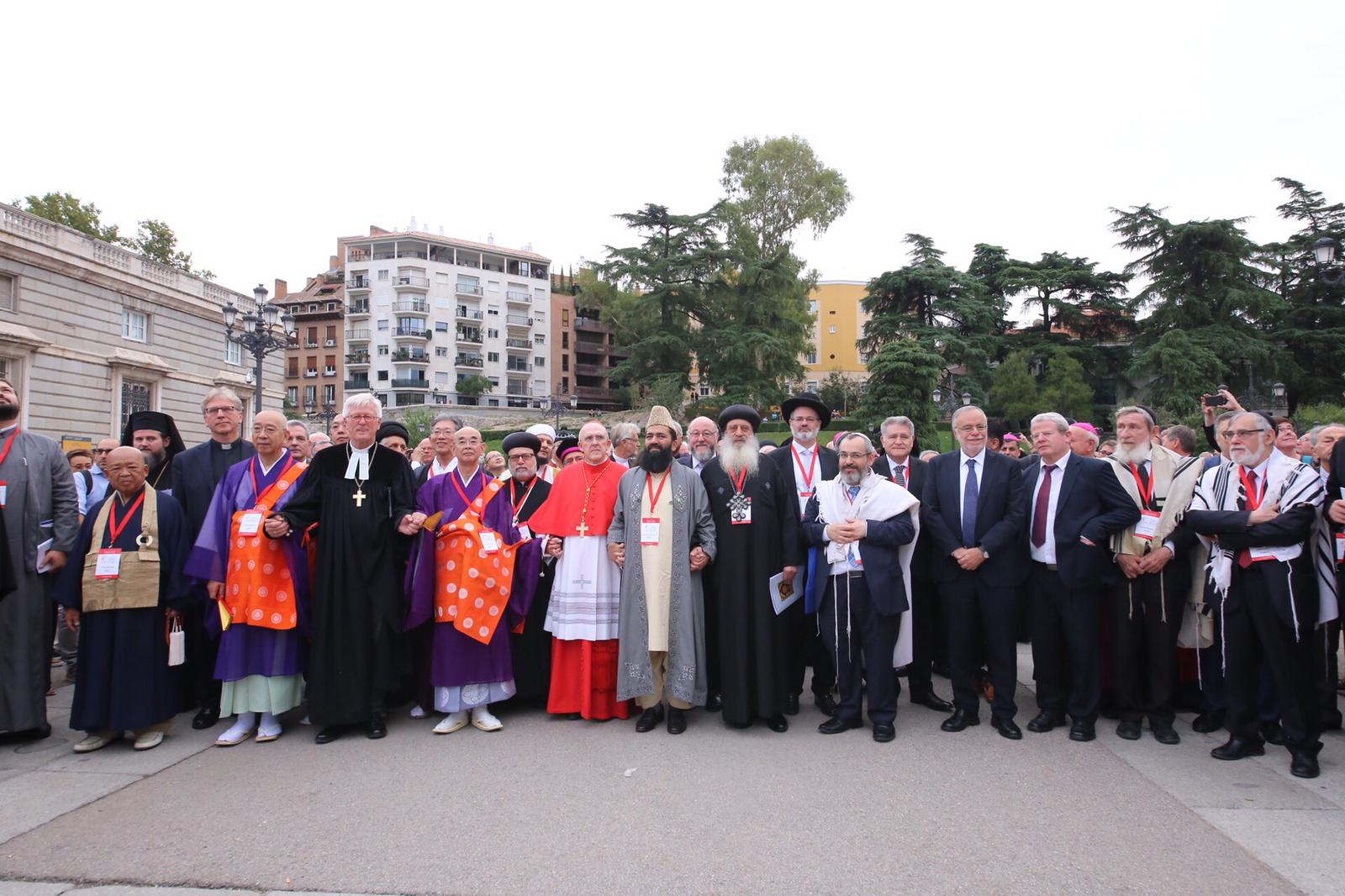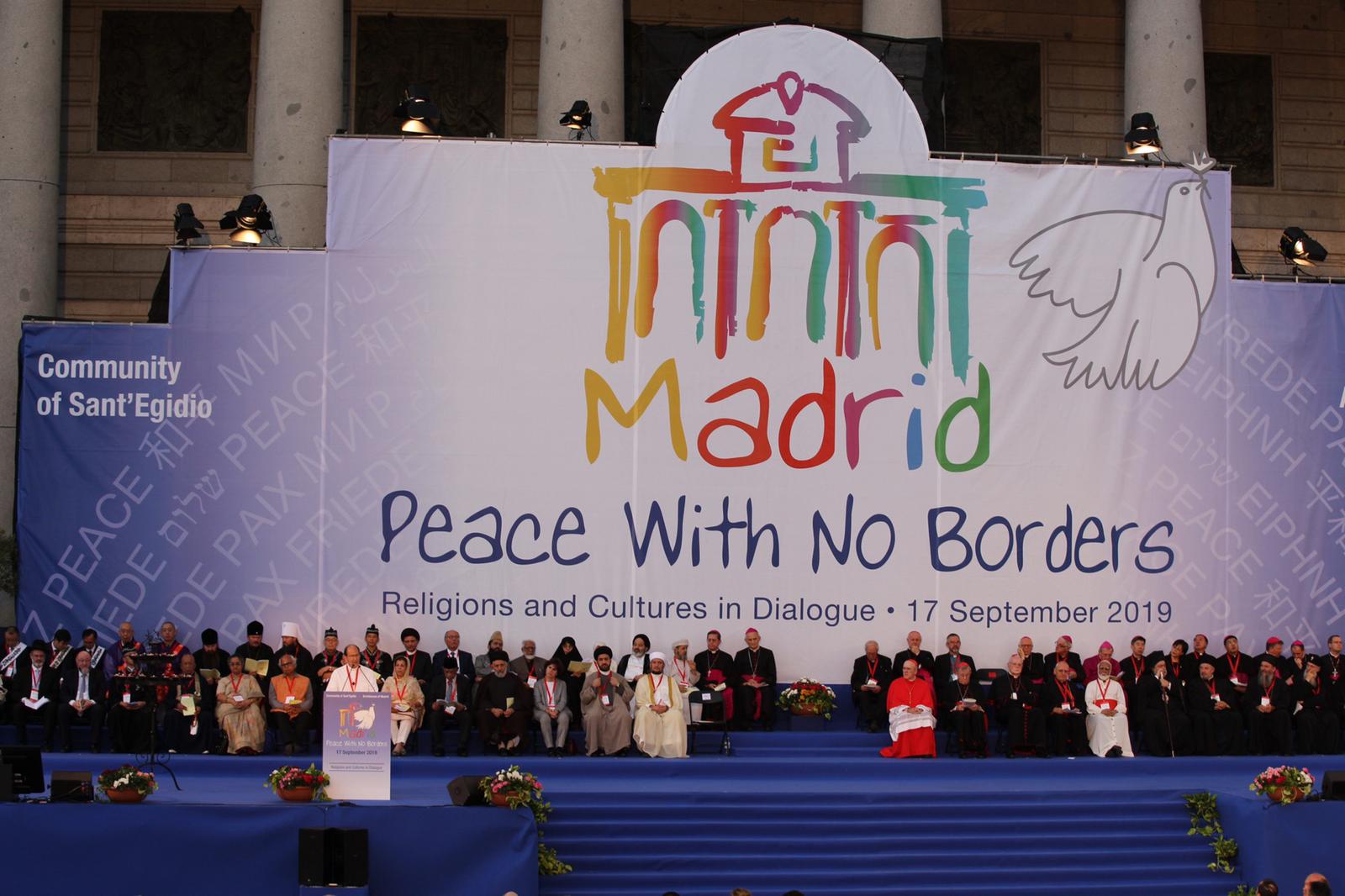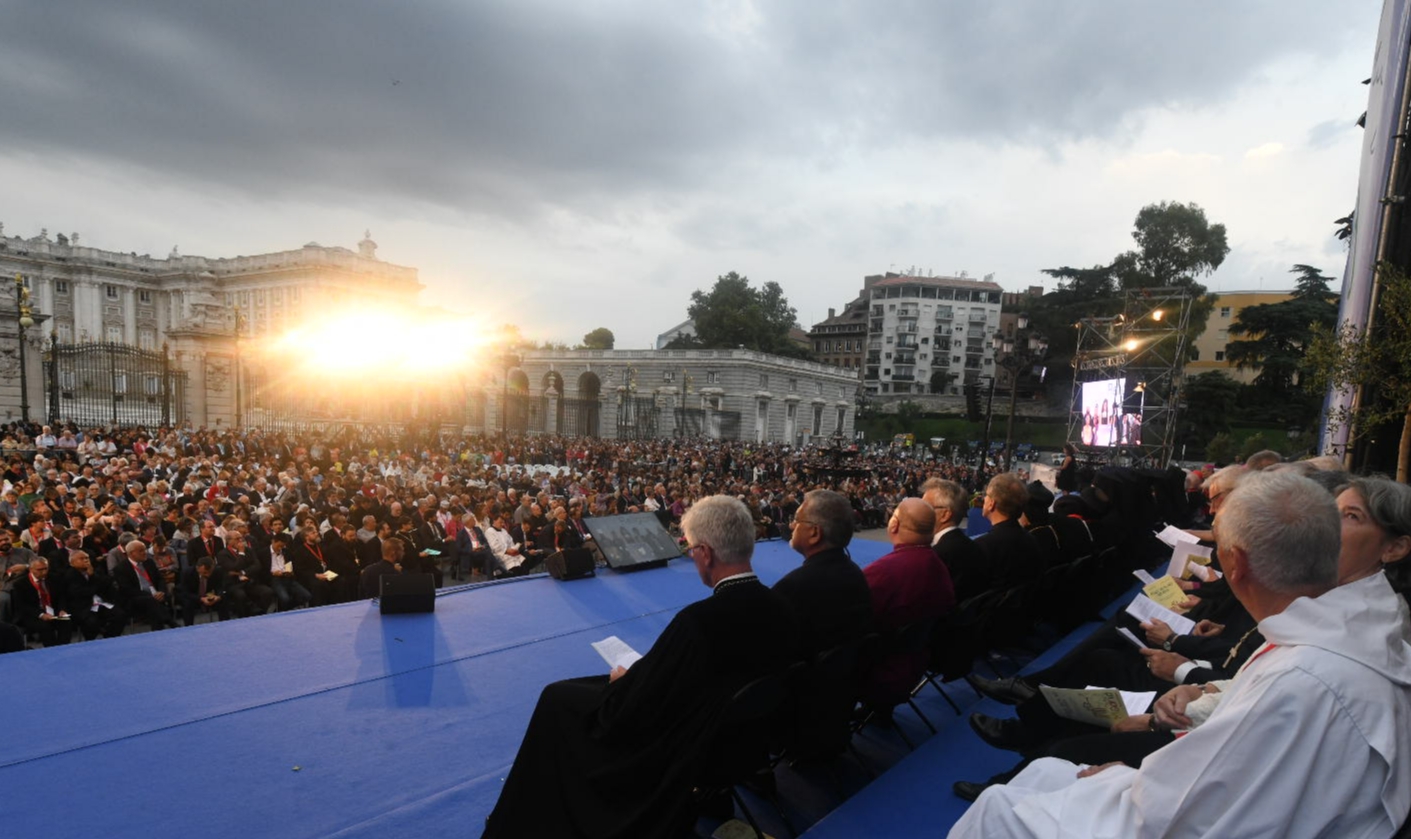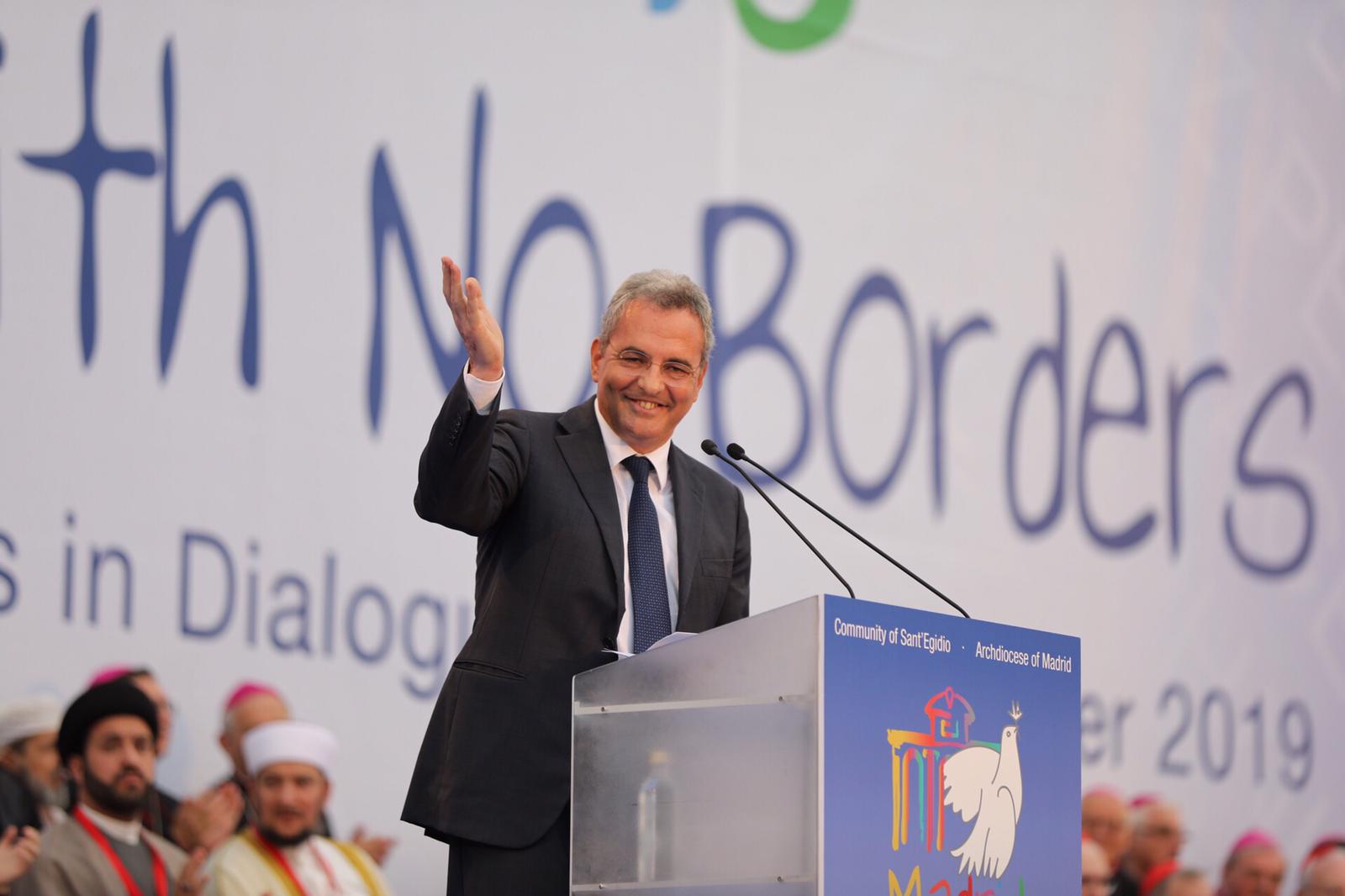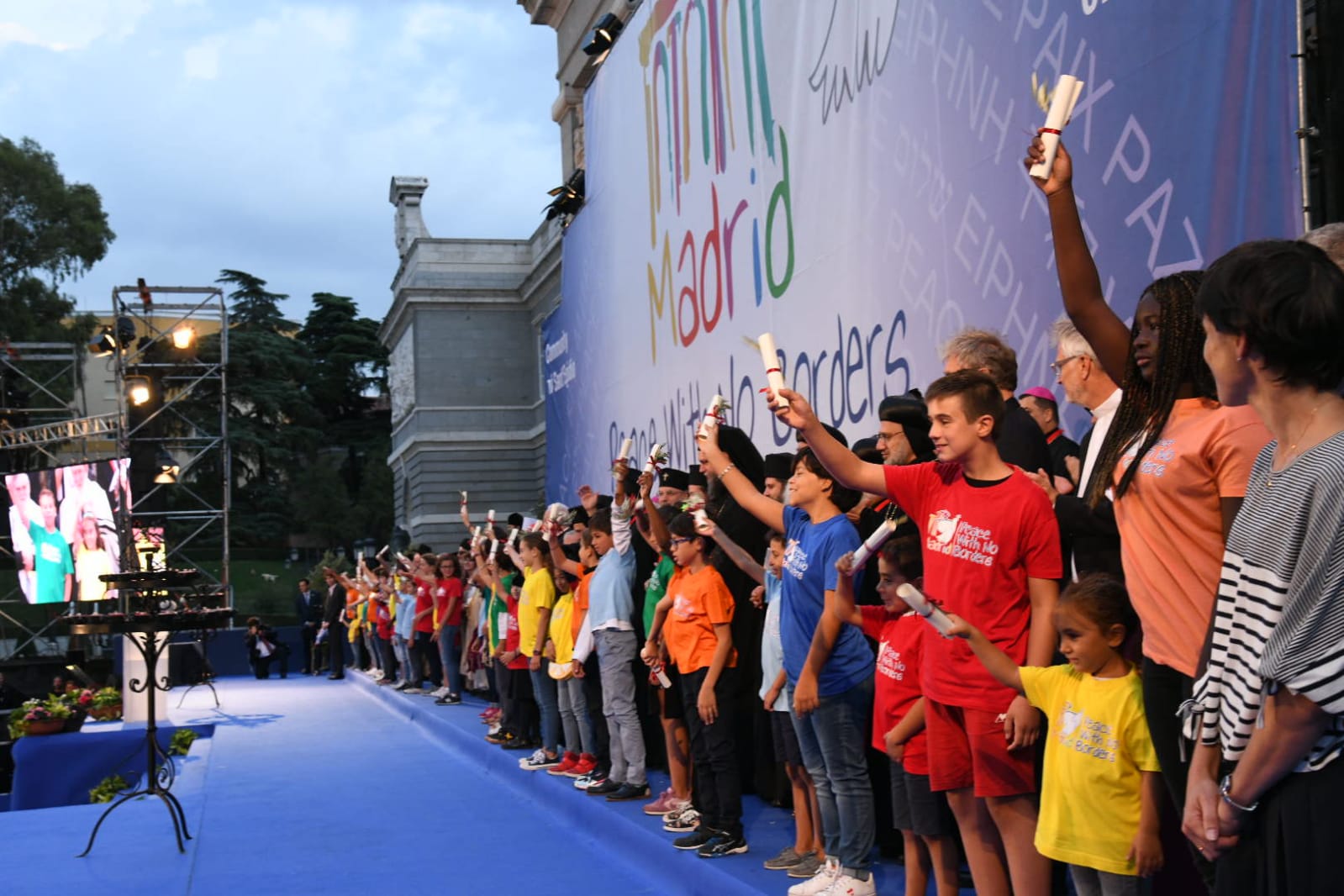September 16 2019 10:00 | Universidad Eclesiástica San Dámaso, Aula Pablo Domínguez
Speech of Din Syamsuddin
Din Syamsuddin
President, Center tor Dialogue and Cooperation among Civilizations, Indonesiabiography
Preface
The phrase is well taken from Pope Paul VI’ encyclical letter Populorum Progressio in 26 March 1967. The central issue in the encyclical letter is development. Pope Paul VI states in Populorum Progressio, as concluded by Ministers of the Infirm (25 March 2017), ”that one of the fundamental tasks of the actors of the world economy is to achieve integral and solidarity-inspired development for humanity, that is to say, ‘the promotion of each man and of the whole man’. This task requires a conception of the economy that assures at a world level a fair distribution of resources and corresponds to an awareness of the economic, political and cultural interdependence that unites the peoples of the world in a definitive way and makes them feel that they are connected to a single destiny”.
The document further elaborated that the encyclical of Pope Paul VI ”lays a great deal of emphasis on the fight against poverty. The principle of solidarity, in the fight against poverty as well, must always be flanked by the principle of subsidiarity, thanks to which it is possible to stimulate a spirit of initiative – which is the fundamental basis of all socio-economic development – in poor countries themselves. One should not look at the poor as a problem but as those who have to become the subjects and protagonists of a new and more human future for the whole of the world“.
The encyclical worldview may well be stated that development is peace, and peace is development. Two phrases show that development and peace are two sides of the coin. They are quintessential the same, each is cause and effect to the other. No peace without development and no development without peace. Yet, it is necessarily stated earlier that development, according to UNDP, is about expanding choices people have to lead lives that they value. Development is, thus, how develop human being well being.
Development and Developmentism
Development, which has since the second half of the twentieth century become an ideological orientation of the world, has its own meaning and transformed to be developmentalism. As an ism developmentalism is indeed a sub system of the world system. The world system that has led human civilization is based on liberalism, so that it has paved the way for liberalization in economy, politics, and culture. The globalized world has shown and resulted from economic, political, and cultural liberalization.
There are four main ideas that are integrated behind the theory of developmentalism (Wikipedia):
First, there is the notion that the performance of a nation's economy is the central source of legitimacy that a regime may claim. Rather than subscribing to the notion, for example, that the ability to make and enforce laws gives a state power, developmentalists argue that the sustenance of economic growth and the subsequent promotion of citizens' welfare gives the general population incentive to support the regime in power, granting it both de facto and de jure legitimacy.
The second tenet of developmentalism asserts that it is the role of regimes to use their governmental authority to spread out the risks associated with capitalist development, as well as to combine governmental and entrepreneurial wills in order to maximize the advancement of national interest.[5]
Thirdly, developmentalism asserts that state bureaucrats become separated from politicians, which allows for the independent and successful redevelopments of leadership structures and administrative and bureaucratic procedures (when such changes become necessary). This separation is key to balancing the needs of the state and the importance of forming and maintaining strong international economic ties. The government, then, has the autonomy to deal with certain issues on a national level, while helping state bureaucrats maintain the internationalism necessary to develop the nation's economy.
The final aspect of developmentalism's ideology deals with the idea that it is necessary for nations to utilize the capitalist system as a means of advancement in the international economy. Privileged positions in capitalist systems arise from active responses to external affairs in order to obtain the external resources with which to gain larger amounts of economic autonomy. The resources gained from active participation in international economic affairs help propel countries out of being exploited by capitalism to positions from which they can exploit the international economy for its own national gain.
Developmentalism that is based on anthropocentric orientation rather than theocentric orientation, and put emphasis on material and physical aspect of human civilization, has brought about civilizational problematique. Peace is no longer contradicted to war, but to the absence of peace in many forms such as poverty, illiteracy, discrimination, injustice, phobias, ecological collaps, violence, and war. As a result, the world has shown unprecendeted condition as concluded as the world of disorder, the world of uncertainty, big disruption, and accummulative global damages.
Positive Peace
It is pertinent, in this context, to remember Johan Galtung’s notion of negative and positive peace. He argues that peace is not only the absence of wars, physical, psychological and verbal violence as negative peace, but also the presence of social and economic justice through equal opportunity, a fair distribution of power and resources, an equal protection and impartial enforcement of law, an ecological balance and non-violent resolution and dispute as positive peace. In other words, in order to achieve sustainable peace several conditions that can prevent conflict into protracted and violent conflict must be addressed.
Accoding to Galtung, positive peace refers to the absence of both direct violence as well as structural violence. Structural violence refers to the ways that system and institutions in society cause, reinforce, or perpetuate direct violence. In this sense, positive peacebuilding (aimed at positive peace) intentionally focuses on address the indirect factors driving or mitigating harmful conflict, with an emphasis on engaging institutions, policies, and political-economic conditions as they relate to exploitation amd repression. Therefore, human development history is history of peacebuilding.
Yes, there is a need for paradigm shift in development. If development has resulted in accummulative global damages, as concluded by the Interaction Council, continuity and change should be done. Development as the name of peace needs to revitalized as reshaped to be instrumental to establish an eternal, real, and genuin peace. Development should create prosperity and security at the same time as the pillars of shared well being. Therefore, it might be taken into consideration, that development in addition to be sustainable, sustainable development, it should also be added charaterictics, such as sustainable development with equity, or sustainable development with meaning. The meaning is none other than meaningful ethical and moral values.
Concluding Remarks: Roles of Religions
One of the most important roles of religion is to help ensure the success of humanitarian and development projects at various levels --from local to international-- and in various issues – from dealing with poverty, illiteracy, diseases, disasters, up to violent extremism and terorism. Religion can serve as a source of powerful legitimation required for any humanitarian and development program to work effectively. By involving religious teachings, leaders, institutions and organizations, many humanitarian and development programs have achieved greater success. With interfaith communication and cooperation flourishing rapidly, we can be more certain of the potential success of every program involving people who take religion seriously.
On the one hand, this shows the extent to which religion is deeply entrenched in societies, and the potentials religion has to help resolve human contemporary problems. On the other hand, this inspires us the way by which we can live out the meaning of religion as a blessing, a mercy for all people, and the role we can better give to religion in our contemporary life.
In this contemporary era, we can see how people found religion as a meaningful teaching and values that is facilitative in succeeding development agenda. Experience in many Asian and African countries where religion is still strongly institutionalized within societies, achievement of Millennium Development Goals (MDGs) and then Sustainable Development Goals (SDGs) is strongly supported by faith organizations. Regardless their differences in some aspects of rituals, religions have common mission to create prosperity, security and peace. This universal mission of religions brought people from different faiths across the globe to build up a constructive partnership for different field of development and humanitarian actions. in this context, it is important to say, in my opinion, religion is indeed from God for human being and humanity. And therefore, the people of different faiths should work together to develop common actions in order to face common enemies with a common responsibility.
What can be done in the future? We have to admit that the world is facing more serious and complex challenges. Not every community, religion and state leaders are happy and supportive to multiculturalism and pluralism. Some of them even stated that multiculturalism and pluralism have been fail. In my view, there is no reason to discard multiculturalism and pluralism. Under above mentioned concepts multiculturalism and pluralism are necessary foundation to find a common ground for our life and our common world. Multiculturalism and pluralism are likely to fail if some of us still think that one particular religion, culture and ethnic is better and superior over other. It has been fail to create a peaceful world if multiculturalism is directed to unilateral world. Multiculturalism can only be successful if is subjected to respect difference and protect identity of all people.
Second, having this view, then people of faith should find ways to build harmony and prosperity. This is possible through a more productive and constructive dialogue to see differences and commonalities of religions. Theologically, there are points when people from different faiths stand in an exclusive state, but there are also points where they share common teaching. Towards differences we have to be tolerant, but to the point of agreement we could develop cooperation.
So far, there are numerous interfaith dialogues as well as Muslim-Christian dialogues. There have been declaration produces from these dialogues. Off course, dialogue is not everything. It is not a panacea that could heal any diseases. Dialogue is just one struggle to find a common ground and shared responsibility. Despites some over-stated criticism on inter-faith, we need to extend dialogue which involves more people from the ground, the grass-root and ordinary people.
But, more importantly, we need to explore ways to move beyond political and theological dialogues. We need to develop cooperation as part of well-grounded dialog. It is cooperation that reflects and represents our common concern to heal the world. Together now, we face a serious climate change and environmental damages. We witness people who suffer of poverty, energy crisis, water crisis, hunger and other human calamities. It is our humanity duty to find ways for a more positive and constructive cooperation on the ground.
